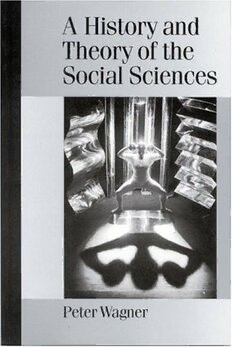
A History and Theory of the Social Sciences: Not All That Is Solid Melts into Air PDF
106 Pages·2001·13.445 MB·English
Most books are stored in the elastic cloud where traffic is expensive. For this reason, we have a limit on daily download.
Preview A History and Theory of the Social Sciences: Not All That Is Solid Melts into Air
Description:
Divided into two parts, this book examines the train of social theory from the 19th century, through to the `organization of modernity', in relation to ideas of social planning, and as contributors to the `rationalistic revolution' of the `golden age' of capitalism in the 1950s and 60s. Part two examines key concepts in the social sciences. It begins with some of the broadest concepts used by social scientists: choice, decision, action and institution and moves on to examine the `collectivist alternative': the concepts of society, culture and polity, which are often dismissed as untenable by postmodernists today. This is a major contribution to contemporary social theory and provides a host of essential insights into the task of social scie
See more
The list of books you might like
Most books are stored in the elastic cloud where traffic is expensive. For this reason, we have a limit on daily download.
